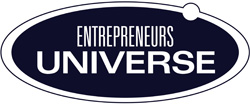The world-famous Chatham House Rule is invoked at Entrepreneurs Universe meetings and events to encourage openness and the sharing of information.
It allows people to speak as individuals, and to express views that may not be those of their organizations, and therefore it encourages free discussion. People usually feel more relaxed if they don’t have to worry about their reputation or the implications if they are publicly quoted. The rule is morally binding.
The Chatham House Rule originated at Chatham House in 1927 with the aim of providing anonymity to speakers and to encourage openness and the sharing of information. It is now used throughout the world as an aid to free discussion. Meetings do not have to take place at Chatham House, or be organized by Chatham House, to be held under the Rule.
The Chatham House Rule reads as follows:
“When a meeting, or part thereof, is held under the Chatham House Rule, participants are free to use the information received, but neither the identity nor the affiliation of the speaker(s), nor that of any other participant, may be revealed”.
UPDATE – The Rule and Twitter
We were recently asked “ Can I ‘tweet’ while at an event under the Chatham House Rule?”
The answer to that is – The Rule can be used effectively on social media sites such as Twitter as long as the person tweeting or messaging reports only what was said at an event and does not identify – directly or indirectly – the speaker or another participant. This consideration should always guide the way in which event information is disseminated – online as well as offline.
